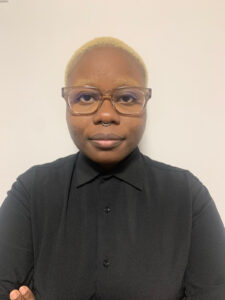
Sid Clarke is currently pursuing a Master of Urban Planning at the University at Buffalo. Born and raised in Brooklyn, NY, they were first introduced to urban agriculture in high school during an internship with the City Parks Foundation, where they spent eight months working in a community garden. They graduated with a Bachelor’s in Anthropology from the City University of New York- Brooklyn College, where they conducted their senior ethnographic research project on food access inequities and environmental racism in predominantly Black communities in New York City and Washington DC. Their interests within planning include food systems, climate justice, and sustainable urban design. They hope to use green urban design to advocate for sustainable infrastructure that supports the health and autonomy of people and the planet, and to endorse community focused equitable urban agriculture and nontraditional food retail to address the systemic inequities that communities of color face in the food system. In their free time, Sid enjoys hiking, pottery and crocheting to unwind.
Justin Kleppel is a graduate student at UB completing his Master’s in Public Health. Originally from New York City, Justin has a deep passion for cities and the health outcomes of those who live in them. Prior to his Master’s, Justin completed his undergraduate degree in Public Health at the University at Buffalo. He aspires to fix food insecurity and health inequalities at the root and believes planning is a tool to accomplish this. Outside of the Food Lab, Justin enjoys coffee and sports. He is also an athlete competing internationally in track & field, and bobsled.
 Faithwin Gbadamos is a PhD student in the Department of Geography. Her research is centered on the nexus of sustainability, health, and development. Her research seeks to answer questions about environmental degradation linked to food security, livelihood impacts, and adaptation strategies. She uses the power of geospatial analysis to gain insights into the relationship between spatial dynamics and social factors. At the Food lab, Faithwin is responsible for tasks involving geographic information.
Faithwin Gbadamos is a PhD student in the Department of Geography. Her research is centered on the nexus of sustainability, health, and development. Her research seeks to answer questions about environmental degradation linked to food security, livelihood impacts, and adaptation strategies. She uses the power of geospatial analysis to gain insights into the relationship between spatial dynamics and social factors. At the Food lab, Faithwin is responsible for tasks involving geographic information.Prior to starting her PhD, Faithwin explored diverse sectors, including energy and telecommunications, providing her with firsthand insights into these sectors and the critical need for sustainable practices. This experience solidified her unwavering commitment to environmental sustainability and health. Faithwin graduated from the University of Ibadan, Nigeria with a bachelor’s degree in Geography.
 Carlos J. Calderon Jr is an undergraduate student at UB majoring in biomedical sciences and pursuing minors in public health and urban planning. A life-long resident of the East Side, he is invested in understanding the social and environmental determinants of health and putting this knowledge to action in the field of medicine. His lived experiences drive his passion to strive for equity in the physical areas where he grew up, which have shaped his academic pursuits. His long-term goal is to influence legislative change for health equity. Carlos is a McNair Scholar and a member of the Honors College and Collegiate Science and Technology Entry Program.
Carlos J. Calderon Jr is an undergraduate student at UB majoring in biomedical sciences and pursuing minors in public health and urban planning. A life-long resident of the East Side, he is invested in understanding the social and environmental determinants of health and putting this knowledge to action in the field of medicine. His lived experiences drive his passion to strive for equity in the physical areas where he grew up, which have shaped his academic pursuits. His long-term goal is to influence legislative change for health equity. Carlos is a McNair Scholar and a member of the Honors College and Collegiate Science and Technology Entry Program. In the Food Lab, Carlos is beginning preliminary work on a research project which aims to explore the impact of people’s inaccessibility to food on public health in the East Side. In his free time, Carlos enjoys running, biking, and eating at new places.
 Mohammad Khurram Qureshi is a passionate advocate for civil, political, and socio-economic rights. He is driven by the conviction that law is a powerful tool for fostering justice and equality. As a licensed attorney from Kashmir, Khurram has dedicated his career to legal aid and social litigation, beginning his advocacy journey during law school. His commitment to human rights and public accountability has seen him collaborate with prominent organizations such as the J&K Right to Information Movement, focused on social justice.
Mohammad Khurram Qureshi is a passionate advocate for civil, political, and socio-economic rights. He is driven by the conviction that law is a powerful tool for fostering justice and equality. As a licensed attorney from Kashmir, Khurram has dedicated his career to legal aid and social litigation, beginning his advocacy journey during law school. His commitment to human rights and public accountability has seen him collaborate with prominent organizations such as the J&K Right to Information Movement, focused on social justice. Khurram is the serving President of the Young Lawyers Forum, a non-profit legal organization dedicated to promoting legal awareness and social advocacy in Kashmir. He holds an integrated Bachelor in Arts and Law degree from the Central University of Kashmir. During his law school tenure, he demonstrated exceptional leadership as the Vice President of the Law Society. He is an admitted LL.M. candidate at the University of Wisconsin Law School and will begin his studies there in fall 2024. Khurram’s unwavering dedication to social advocacy continues to inspire his work, making him a formidable force in the pursuit of justice. In his free time, he likes to go hiking, camping, and kayaking.


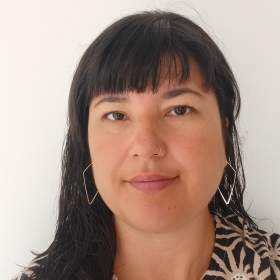 Alissa Ujie Diamond is an assistant professor in the Department of Urban and Regional Planning at the University at Buffalo, SUNY. Diamond’s work focuses on histories of spatialized inequity and action-research as a basis for systems change in the contemporary world. As an interdisciplinary scholar, she draws on an early career in applied architectural and landscape design as well as scholarly frameworks from environmental history, geography, plant humanities, urban planning, and ethnic studies.
Alissa Ujie Diamond is an assistant professor in the Department of Urban and Regional Planning at the University at Buffalo, SUNY. Diamond’s work focuses on histories of spatialized inequity and action-research as a basis for systems change in the contemporary world. As an interdisciplinary scholar, she draws on an early career in applied architectural and landscape design as well as scholarly frameworks from environmental history, geography, plant humanities, urban planning, and ethnic studies.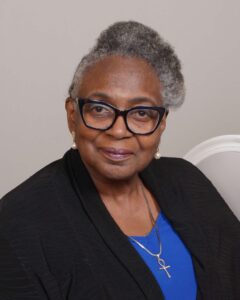 Ms. Della Miller is the 2024 Community Advisor for Research that is Equitable (CARE) Fellow in the UB Food Lab, where she provides guidance and advice on all Buffalo-focused community-related research projects. She is a passionate advocate and experienced consultant in multiple spheres, including community health, education and generational wealth for underserved and low-income communities. A distinguished leader in the field of food equity, Ms. Miller has founded or co-founded multiple food-related initiatives in Buffalo, NY, including St. Augustine’s Food Co-Op and Buffalo Federation of Neighborhood Centers Food Co-Op. As a trained food service expert, she has supported the planning, design, and execution of commercial kitchens with a view toward health and safety. Additionally, she has lent her expertise as a member of the Black Farmers United – NYS, and Buffalo Black Chamber of Commerce, and as a board member of the Clean Air Coalition. She currently serves on the board of Buffalo Freedom Gardens, Inc., a not-for-profit organization committed to helping people grow their own food to support their destinies, and provide for their families while building a loving, healing community that is thriving, healthy and well.
Ms. Della Miller is the 2024 Community Advisor for Research that is Equitable (CARE) Fellow in the UB Food Lab, where she provides guidance and advice on all Buffalo-focused community-related research projects. She is a passionate advocate and experienced consultant in multiple spheres, including community health, education and generational wealth for underserved and low-income communities. A distinguished leader in the field of food equity, Ms. Miller has founded or co-founded multiple food-related initiatives in Buffalo, NY, including St. Augustine’s Food Co-Op and Buffalo Federation of Neighborhood Centers Food Co-Op. As a trained food service expert, she has supported the planning, design, and execution of commercial kitchens with a view toward health and safety. Additionally, she has lent her expertise as a member of the Black Farmers United – NYS, and Buffalo Black Chamber of Commerce, and as a board member of the Clean Air Coalition. She currently serves on the board of Buffalo Freedom Gardens, Inc., a not-for-profit organization committed to helping people grow their own food to support their destinies, and provide for their families while building a loving, healing community that is thriving, healthy and well.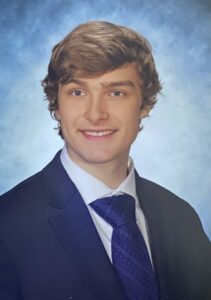 Matthew Tilly
Matthew Tilly  Faithwin Gbadamos
Faithwin Gbadamos  Carlos J. Calderon Jr
Carlos J. Calderon Jr Mohammad Khurram Qureshi
Mohammad Khurram Qureshi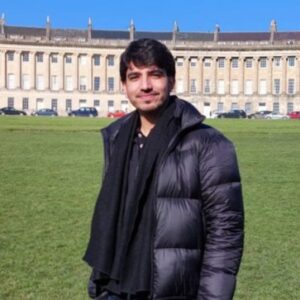 Saad Mustafa Shonthu
Saad Mustafa Shonthu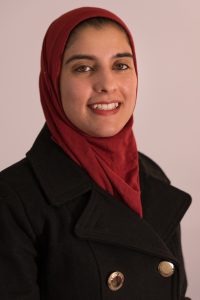 Maheen Akram
Maheen Akram